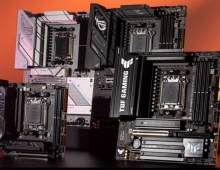
Intel to Push PC Use Globally
Intel will expand its effort to provide inexpensive computers and promote WiMax broadband Internet service in developing countries with a $1 billion "holistic" push to increase computer usage, chief executive Paul Otellini said on Wednesday.
Otellini, in a speech at the World Congress on Information Technology, said the No. 1 chip maker plans to train 10 million teachers to use computers in the classroom as part of a program called "The World Ahead," which was announced on Tuesday.
Mexico President Vicente Fox said in a videotaped message that Intel would give low-cost computers and Internet connections to 300,000 Mexican teachers.
Otellini, giving new details about the five-year program, said Intel's plan was to offer cheap computers, but also increase Internet availability and training on how to use it.
"It's a holistic approach to reach the next billion computer users," Otellini said of the latest initiative. "We want to accelerate access to uncompromised technology to everyone in the world."
Intel microprocessors power most of the world's personal computers, but the Santa Clara, California-based company is seeking new markets to offset slowing growth in wealthy, PC-saturated countries.
Otellini displayed a portable computer designed for students in India that, to increase durability, uses only flash drive memory, is powered by a cool-running processor to prevent overheating in a tropical climate and has a backup system that can use a car battery for power when electricity is off.

The laptop, to be built by local computer companies using an Intel design, is set to go on the market early next year and sell below $400.
The idea is to offer fully-functional computers for 20 percent below current prices in the local markets and tailored to local needs.
"Decreasing the price point is important. And one size doesn't fit all," Otellini said.
Intel would equip computers with both WiFi and WiMax capability and would promote WiMax development as an inexpensive way to provide widespread Internet service. WiMax is sort of a beefed up WiFi technology that offers high-speed Internet over a long range.
He said Intel would invest half a billion dollars over the next five years to make WiMax broadband more widely available.
Intel's rival AMD and Microsoft have also announced similar plans, although Microsoft involves mobile devices other than laptops. Even before "World Ahead," Intel promoted inexpensive PCs for developing countries, where most people cannot afford the current models and may not have access to the Internet.
Mexico President Vicente Fox said in a videotaped message that Intel would give low-cost computers and Internet connections to 300,000 Mexican teachers.
Otellini, giving new details about the five-year program, said Intel's plan was to offer cheap computers, but also increase Internet availability and training on how to use it.
"It's a holistic approach to reach the next billion computer users," Otellini said of the latest initiative. "We want to accelerate access to uncompromised technology to everyone in the world."
Intel microprocessors power most of the world's personal computers, but the Santa Clara, California-based company is seeking new markets to offset slowing growth in wealthy, PC-saturated countries.
Otellini displayed a portable computer designed for students in India that, to increase durability, uses only flash drive memory, is powered by a cool-running processor to prevent overheating in a tropical climate and has a backup system that can use a car battery for power when electricity is off.

The laptop, to be built by local computer companies using an Intel design, is set to go on the market early next year and sell below $400.
The idea is to offer fully-functional computers for 20 percent below current prices in the local markets and tailored to local needs.
"Decreasing the price point is important. And one size doesn't fit all," Otellini said.
Intel would equip computers with both WiFi and WiMax capability and would promote WiMax development as an inexpensive way to provide widespread Internet service. WiMax is sort of a beefed up WiFi technology that offers high-speed Internet over a long range.
He said Intel would invest half a billion dollars over the next five years to make WiMax broadband more widely available.
Intel's rival AMD and Microsoft have also announced similar plans, although Microsoft involves mobile devices other than laptops. Even before "World Ahead," Intel promoted inexpensive PCs for developing countries, where most people cannot afford the current models and may not have access to the Internet.





















